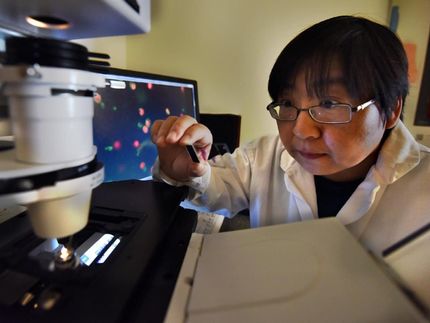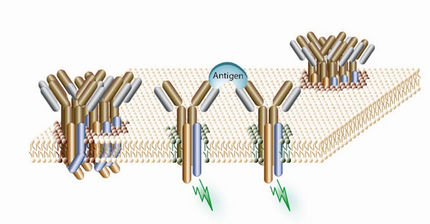The Swedish initiative to map all human proteins reaches half-way point
The Human Protein Atlas project has mapped 10,000 individual proteins to date
Scientists in Sweden marked the half way point of a major, ground-breaking initiative to map every single protein in the human body. Once complete, the Human Protein Atlas will provide scientists with data which will help detect and treat some of the world’s most serious health problems such as cancer, cardiovascular and neurological diseases.
Bringing together scientists in the Stockholm-Uppsala region, the Human Protein Atlas project is a collaboration between the Royal Institute of Technology in Stockholm and Uppsala University. It seeks to emulate the success of the Human Genome Project, focussing on the previously uncharted human proteome.
Mapping unchartered territory: A world first
Proteins are vital entities in human cells and are involved in nearly all body functions both in healthy and diseased individuals. They are the targets for essentially all pharmaceutical drugs. There are 20,000 proteins created by the human body, but a large portion of these important building blocks have never been characterized.
Explaining the importance of the Human Protein Atlas, Professor Mathias Uhlén, project founder, said: “Proteins are the essential building blocks of human life; they govern every way that the body grows and develops. If we can properly identify and understand the behaviour of each of these 20,000 proteins we will unlock the code to understanding how and why diseases develop, paving the way for more successful treatments and better diagnostic tools.
“Mapping the human proteins makes it possible to fully exploit the results from the human genome project. Together, mapping the human building-blocks at the genome and proteome level has the potential to transform modern medicine. Reaching this half way point is significant for the Human Protein Atlas project as it moves us a significantly large step closer to completion, which we anticipate to be in 2015.”
Personalised treatment
In recent years there has been an increased interest and investment in a more personalised approach to medicine, facilitated by a better understanding of human proteins. This approach means doctors can detect disease at a much earlier stage and select the right treatment for each patient. Research breakthroughs, like the Human Protein Atlas project, will enable earlier and more precise diagnosis, a necessity for selecting which patients that actually might benefit from expensive and very targeted drugs which only work for specific small groups of patients.
What does mapping all human proteins mean?
The Human Protein Atlas project researchers in Sweden and Asia are able to map between eight and ten proteins each day, and 2,400 every year. Using genes as a starting point, scientists at the Human Protein Atlas project identify the associated protein. A specific region of the protein is chosen for the purpose of acting as a ‘signature‘ or template for making associated antibodies. These antibodies are then used as tools to document expression and localization of proteins in a large variety of normal human tissues, cancer cells and cell lines.
See the theme worlds for related content
Topic world Antibodies
Antibodies are specialized molecules of our immune system that can specifically recognize and neutralize pathogens or foreign substances. Antibody research in biotech and pharma has recognized this natural defense potential and is working intensively to make it therapeutically useful. From monoclonal antibodies used against cancer or autoimmune diseases to antibody-drug conjugates that specifically transport drugs to disease cells - the possibilities are enormous

Topic world Antibodies
Antibodies are specialized molecules of our immune system that can specifically recognize and neutralize pathogens or foreign substances. Antibody research in biotech and pharma has recognized this natural defense potential and is working intensively to make it therapeutically useful. From monoclonal antibodies used against cancer or autoimmune diseases to antibody-drug conjugates that specifically transport drugs to disease cells - the possibilities are enormous



















































